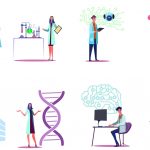The Importance of Developing Better Mental Sensemaking Tools
In order for someone to gain knowledge from what is written or what is said, they need to have cognitive tools to reasonably evaluate information. One’s ability to gain knowledge of things in the world that are beyond their range of firsthand observation depends on their mental skills for rationally filtering and scrutinizing claims, accounts, and narratives. This is why knowing the means of correctly identifying facts, including the frameworks that we can use for sorting out fact from fiction, are just as important as knowing the facts themselves.
In other words, it is not enough just to identify facts. It is not sufficient to merely point out the truth and to reject falsehood. Our focus should also be on how to develop better sensemaking tools within our minds and within the minds of others. We need to learn how to think more reasonably, how to develop critical thinking skills, how to avoid propagating false information, how to set the record straight, and how to help other people recognize the truth as well. This day and age, this is increasingly difficult, so we need to carefully calibrate the disinformation detector (also called a “BS meter”) within our minds so that we can avoid being manipulated by crafty propaganda artists and prevent ourselves from becoming brainwashed by the relentless lies concocted by certain wealthy and powerful organizations.
We need to understand contextual information associated with claims that are made that that we can construct a more accurate mental representation of reality. None of us will ever be able to get a full understanding of reality, and each of us will inevitably always have some biases and falsehoods in our minds, but there is a huge difference between believing complete fiction and being well-educated and responsible. Sure, the latter is still a bit biased and will always involve imperfect knowledge, but it is far better than believing in and propagating contrived and dangerous falsehoods.
Indeed, everyone has some bias. Everyone has an imperfect perspective on things. Nobody sees and understand reality as it actually is. Anyone accusing another of bias should acknowledge that they also have some bias. It is important, however, to recognize that not everyone is biased to the same degree and in the same way. We have to acknowledge that we have certain innate cognitive distortions, but that does not mean that our conception of reality is always hopelessly distorted. Those who are more educated in particular subjects, meaning that they have taken the time and effort to learn about how certain things in life work, are probably less biased in those areas than someone who hasn’t gone through such training. Also, people might be more or less biased than others with regard to certain subjects based on their background in life and past experiences. It is possible, and in some cases entirely reasonable, for some people to recognize that other people have greater bias than they do in some specific area, but they should probably only do this if they can benchmark this judgment against some objective and largely indisputable facts.
We can, for example, imagine a plumber or an electrician who has extensive experience in their field of expertise who consequently would likely be far more accurate and less biased in their assessment of how the electrical and plumbing systems of a building should be constructed and maintained. People who don’t have knowledge or experience in these areas might have ideas or opinions about how to wire up a building or how to install a new water line, but they could not be well-informed on these matters. Similarly, we would expect that someone who has studied political science and sociology and whose career has involved working in the public sphere would be in a better position to understand these matters with less bias than people who don’t have any special training or experience in these areas. Just as the plumber and the electrician would be expected to understand the ins and outs of their respective fields and how to get a building’s infrastructure in working order better than any layperson or outsider, so too would trained and experienced political scientists, sociologists, and economists be expected to know what needs to done to hold society together better than anyone with no legitimate training or experience in these fields.
Even for the majority of us who don’t have formal training or experience in political or economic issues or topics involving scientific research and discoveries, we can at least be well-informed enough to identify reasonable claims that are supported by evidence and to filter out those that don’t seem plausible. This requires one to have curiosity and willingness to spend time learning. If one makes enough effort to inquire, to study, and to scrutinize, then eventually they will have the mental skills to identify the significant details embedded within claims, accounts, and narratives that would give indication of how plausible they are and whether they are supported by sufficient evidence to be accepted as likely true. One need not be an expert in any specific field to have this ability.









